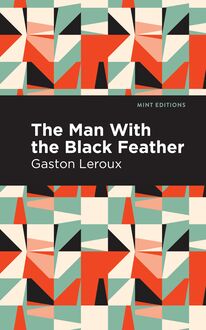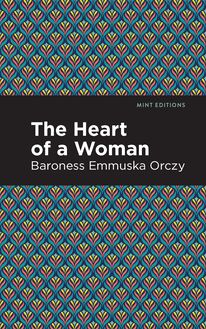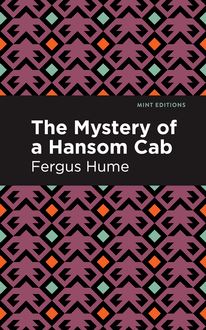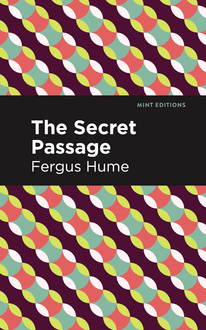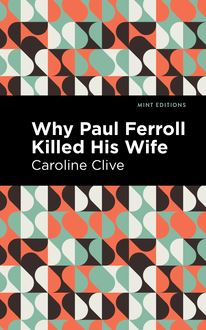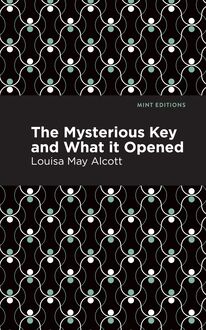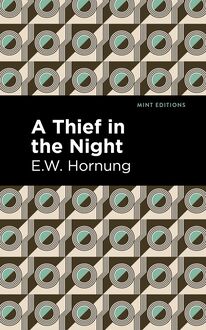-
 Univers
Univers
-
 Ebooks
Ebooks
-
 Livres audio
Livres audio
-
 Presse
Presse
-
 Podcasts
Podcasts
-
 BD
BD
-
 Documents
Documents
-
- Cours
- Révisions
- Ressources pédagogiques
- Sciences de l’éducation
- Manuels scolaires
- Langues
- Travaux de classe
- Annales de BEP
- Etudes supérieures
- Maternelle et primaire
- Fiches de lecture
- Orientation scolaire
- Méthodologie
- Corrigés de devoir
- Annales d’examens et concours
- Annales du bac
- Annales du brevet
- Rapports de stage
La lecture à portée de main
Vous pourrez modifier la taille du texte de cet ouvrage
Découvre YouScribe en t'inscrivant gratuitement
Je m'inscrisDécouvre YouScribe en t'inscrivant gratuitement
Je m'inscrisEn savoir plus
Vous pourrez modifier la taille du texte de cet ouvrage
En savoir plus

Description
The Woman of Mystery (1916) is a novel by Maurice Leblanc. Although he is known for his series of stories and novels featuring Arsène Lupin, a character based on the life of French anarchist Marius Jacob and inspired by Arthur Conan Doyle’s Sherlock Holmes, Leblanc also wrote standalone tales of mystery and adventure. The Woman of Mystery is an entertaining blend of history and crime fiction for children and adults alike.
Paul Delroze is no stranger to violence. On the eve of the Great War, as a nation prepares to do battle with the existential threat of a lifetime, Paul recalls a strange event from his childhood. On a trip with his father, a decorated veteran, through the French countryside, they encountered a gathering of people speaking German. Their leader, a coldhearted man who bore a striking resemblance to the Kaiser, quickly sent the father and son on their way. Before they could escape, however, a woman from the group approached Paul’s father for a word and killed him in cold blood with the flash of a steel blade. Miraculously, Paul escaped with his life that day, but never could forget the face of that man. Filled with memories of his father, who had served in the Franco-Prussian War of 1870, Paul had always known the day would come when the two nations would fight again—this time, he hopes to take his revenge. The Woman of Mystery is a story of romance, mystery, and crime that continues to astound over a century after it was published.
With a beautifully designed cover and professionally typeset manuscript, this edition of Maurice Leblanc’s The Woman of Mystery is a classic of French literature reimagined for modern readers.
Sujets
Informations
| Publié par | Mint Editions |
| Date de parution | 24 mars 2021 |
| Nombre de lectures | 0 |
| EAN13 | 9781513295299 |
| Langue | English |
Informations légales : prix de location à la page 0,0500€. Cette information est donnée uniquement à titre indicatif conformément à la législation en vigueur.
Extrait
The Woman of Mystery
Maurice Leblanc
The Woman of Mystery was first published in 1916.
This edition published by Mint Editions 2021.
ISBN 9781513292441 | E-ISBN 9781513295299
Published by Mint Editions ®
minteditionbooks .com
Publishing Director: Jennifer Newens
Design & Production: Rachel Lopez Metzger
Project Manager: Micaela Clark
Typesetting: Westchester Publishing Services
C ONTENTS I. T HE M URDER II. T HE L OCKED R OOM III. T HE C ALL TO A RMS IV. A L ETTER FROM É LISABETH V. T HE P EASANT -W OMAN AT C ORVIGNY VI. W HAT P AUL S AW AT O RNEQUIN VII. H. E. R. M . VIII. É LISABETH ’ S D IARY IX. A S PRIG OF E MPIRE X. 75 OR 155? XI. “Y SERY , M ISERY ” XII. M AJOR H ERMANN XIII. T HE F ERRYMAN ’ S H OUSE XIV. A M ASTERPIECE OF K ULTUR XV. P RINCE C ONRAD M AKES M ERRY XVI. T HE I MPOSSIBLE S TRUGGLE XVII. T HE L AW OF THE C ONQUEROR XVIII. H ILL 132 XIX. H OHENZOLLERN XX. T HE D EATH P ENALTY —A ND A C APITAL P UNISHMENT
I
T HE M URDER
“ S uppose I were to tell you,” said Paul Delroze, “that I once stood face to face with him on French…”
É lisabeth looked up at him with the fond expression of a bride to whom the least word of the man she loves is a subject of wonder:
“You have seen William II in France?”
“Saw him with my own eyes; and I have never forgotten a single one of the details that marked the meeting. And yet it happened very long ago.”
He was speaking with a sudden seriousness, as though the revival of that memory had awakened the most painful thoughts in his mind.
“Tell me about it, won’t you, Paul?” asked É lisabeth.
“Yes, I will,” he said. “In any case, though I was only a child at the time, the incident played so tragic a part in my life that I am bound to tell you the whole story.”
The train stopped and they got out at Corvigny, the last station on the local branch line which, starting from the chief town in the department, runs through the Liseron Valley and ends, fifteen miles from the frontier, at the foot of the little Lorraine city which Vauban, as he tells us in his “Memoirs,” surrounded “with the most perfect demilunes imaginable.”
The railway-station presented an appearance of unusual animation. There were numbers of soldiers, including many officers. A crowd of passengers—tradespeople, peasants, workmen and visitors to the neighboring health-resorts served by Corvigny—stood amid piles of luggage on the platform, awaiting the departure of the next train for the junction.
It was the last Thursday in July, the Thursday before the mobilization of the French army.
É lisabeth pressed up against her husband:
“Oh, Paul,” she said, shivering with anxiety, “if only we don’t have war!”
“War! What an idea!”
“But look at all these people leaving, all these families running away from the frontier!”
“That proves nothing.”
“No, but you saw it in the paper just now. The news is very bad. Germany is preparing for war. She has planned the whole thing… Oh, Paul, if we were to be separated! … I should know nothing about you… and you might be wounded… and…”
He squeezed her hand:
“Don’t be afraid, É lisabeth. Nothing of the kind will happen. There can’t be war unless somebody declares it. And who would be fool enough, criminal enough, to do anything so abominable?”
“I am not afraid,” she said, “and I am sure that I should be very brave if you had to go. Only… only it would be worse for us than for anybody else. Just think, darling: we were only married this morning!”
At this reference to their wedding of a few hours ago, containing so great a promise of deep and lasting joy, her charming face lit up, under its halo of golden curls, with a smile of utter trustfulness; and she whispered:
“Married this morning, Paul! … So you can understand that my load of happiness is not yet very heavy.”
There was a movement among the crowd. Everybody gathered around the exit. A general officer, accompanied by two aides-de-camp, stepped out into the station-yard, where a motor-car stood waiting for him. The strains were heard of a military band; a battalion of light infantry marched down the road. Next came a team of sixteen horses, driven by artillery-men and dragging an enormous siege-piece which, in spite of the weight of its carriage, looked light, because of the extreme length of the gun. A herd of bullocks followed.
Paul, who was unable to find a porter, was standing on the pavement, carrying the two traveling-bags, when a man in leather gaiters, green velveteen breeches and a shooting-jacket with horn buttons, came up to him and raised his cap:
“M. Paul Delroze?” he said. “I am the keeper at the ch â teau.”
He had a powerful, open face, a skin hardened by exposure to the sun and the cold, hair that was already turning gray and that rather uncouth manner often displayed by old servants whose place allows them a certain degree of independence. For seventeen years he had lived on the great estate of Ornequin, above Corvigny, and managed it for É lisabeth’s father, the Comte d’Andeville.
“Ah, so you’re J é r ô me?” cried Paul. “Good! I see you had the Comte d’Andeville’s letter. Have our servants come?”
“They arrived this morning, sir, the three of them; and they have been helping my wife and me to tidy up the house and make it ready to receive the master and the mistress.”
He took off his cap again to É lisabeth, who said:
“Then you remember me, J é r ô me? It is so long since I was here!”
“Mlle. É lisabeth was four years old then. It was a real sorrow for my wife and me when we heard that you would not come back to the house… nor Monsieur le Comte either, because of his poor dead wife. So Monsieur le Comte does not mean to pay us a little visit this year?”
“No, J é r ô me, I don’t think so. Though it is so many years ago, my father is still very unhappy.”
J é r ô me took the bags and placed them in a fly which he had ordered at Corvigny. The heavy luggage was to follow in the farm-cart.
It was a fine day and Paul told them to lower the hood. Then he and his wife took their seats.
“It’s not a very long drive,” said the keeper. “Under ten miles. But it’s up-hill all the way.”
“Is the house more or less fit to live in?” asked Paul.
“Well, it’s not like a house that has been lived in; but you’ll see for yourself, sir. We’ve done the best we could. My wife is so pleased that you and the mistress are coming! You’ll find her waiting for her at the foot of the steps. I told her that you would be there between half-past six and seven…”
The fly drove off.
“He seems a decent sort of man,” said Paul to É lisabeth, “but he can’t have much opportunity for talking. He’s making up for lost time.”
The street climbed the steep slope of the Corvigny hills and constituted, between two rows of shops, hotels and public buildings, the main artery of the town, blocked on this day with unaccustomed traffic. Then it dipped and skirted Vauban’s ancient bastions. Next came a switchback road across a plain commanded on the right and left by the two forts known as the Petit and the Grand Jonas.
As they drove along this winding road, which meandered through fields of oats and wheat beneath the leafy vault formed overhead by the close-ranked poplars, Paul Delroze came back to the episode of his childhood which he had promised to tell to É lisabeth:
“As I said, É lisabeth, the incident is connected with a terrible tragedy, so closely connected that the two form only one episode in my memory. The tragedy was much talked about at the time; and your father, who was a friend of my father’s, as you know, heard of it through the newspapers. The reason why he did not mention it to you was that I asked him not to, because I wanted to be the first to tell you of events… so painful to myself.”
Their hands met and clasped. He knew that every one of his words would find a ready listener; and, after a brief pause, he continued:
“My father was one of those men who compel the sympathy and even the affection of all who know them. He had a generous, enthusiastic, attractive nature and an unfailing good-humor, took a passionate interest in any fine cause and any fine spectacle, loved life and enjoyed it with a sort of precipitate haste. He enlisted in 1870 as a volunteer, earned his lieutenant’s commission on the battlefield and found the soldier’s heroic existence so well suited to his tastes that he volunteered a second time for Tonkin, and a third to take part in the conquest of Madagascar… On his return from this campaign, in which he was promoted to captain and received the Legion of Honor, he married. Six years later he was a widower.”
“You were like me, Paul,” said É lisabeth. “You hardly enjoyed the happiness of knowing your mother.”
“No, for I was only four years old. But my father, who felt my mother’s death most cruelly, bestowed all his affection upon me. He made a point of personally giving me my early education. He left nothing undone to perfect my physical training and to make a strong and plucky lad of me. I loved him with all my heart. To this day I cannot think of him without genuine emotion… When I was eleven years old, I accompanied him on a journey through France, which he had put off for years because he wanted me to take it with him at an age when I could understand its full meaning. It was a pilgrimage to the identical places and along the roads where he had fought during the terrible year.”
“Did your father believe in the possibility of another war?”
“Yes; and he wanted to prepare me for it. ‘Paul,’ he said, ‘I have no doubt that one day you will be facing the same enemy whom I fought against. From this moment pay no attention to any fine words of peace that you may hear, but hate that enemy with all the hatred of which you are capable. Whatever people may say, he is a barbarian, a vain-glorious, bloodthirsty brute, a beast of prey. He crushed us once and he will not rest content until he has crushed us again and, this time, for good. When that day comes, Paul,
-
 Univers
Univers
-
 Ebooks
Ebooks
-
 Livres audio
Livres audio
-
 Presse
Presse
-
 Podcasts
Podcasts
-
 BD
BD
-
 Documents
Documents
-
Jeunesse
-
Littérature
-
Ressources professionnelles
-
Santé et bien-être
-
Savoirs
-
Education
-
Loisirs et hobbies
-
Art, musique et cinéma
-
Actualité et débat de société
-
Jeunesse
-
Littérature
-
Ressources professionnelles
-
Santé et bien-être
-
Savoirs
-
Education
-
Loisirs et hobbies
-
Art, musique et cinéma
-
Actualité et débat de société
-
Actualités
-
Lifestyle
-
Presse jeunesse
-
Presse professionnelle
-
Pratique
-
Presse sportive
-
Presse internationale
-
Culture & Médias
-
Action et Aventures
-
Science-fiction et Fantasy
-
Société
-
Jeunesse
-
Littérature
-
Ressources professionnelles
-
Santé et bien-être
-
Savoirs
-
Education
-
Loisirs et hobbies
-
Art, musique et cinéma
-
Actualité et débat de société
- Cours
- Révisions
- Ressources pédagogiques
- Sciences de l’éducation
- Manuels scolaires
- Langues
- Travaux de classe
- Annales de BEP
- Etudes supérieures
- Maternelle et primaire
- Fiches de lecture
- Orientation scolaire
- Méthodologie
- Corrigés de devoir
- Annales d’examens et concours
- Annales du bac
- Annales du brevet
- Rapports de stage





